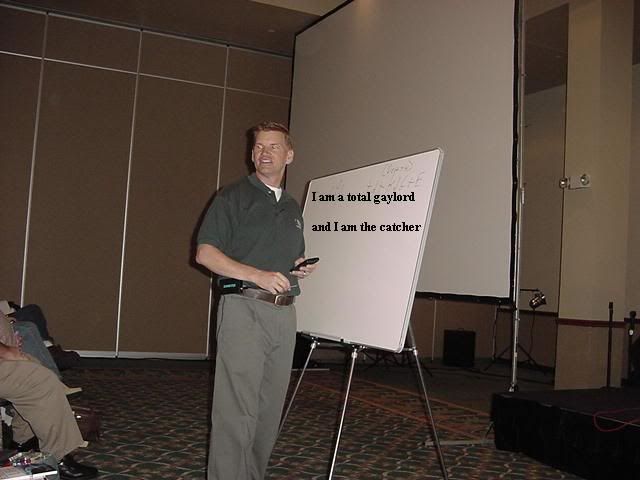This is a response to Stern; a splendid fellow from the Raving Atheist:
I am not sure I fully understand your question, but I will say this: appeals to an undefined "quantum vacuum foam" are weak. The actual structure of spacetime is not well understood; it may contain singularities, in which case, all bets are off. However, remember, that vacuum was created along with the spacetime (it IS the spacetime) so the energy was already there. Does the vacuum contain energy? You know it does biyatch.
There are similar postulates concerning vacuum energy that also have no evidence and mixed acceptance as far as their theoretical liklehood goes. I fear this happens a lot, as a result of string theory. I have recently come to consider string theory as a fat man clinging to the back of science as it tries to swim across an ocean of confusion. After > 30 years string theory still has nothing whatsoever to say about reality. How is that even science? Being hard to understand is not sufficient in my book. Otherwise we ought to be studying shaft theory, a course which could only be taught by his woman.
For the record, I originally wanted to be a string theorist. I was sucked into physics by the allure of theoretical cosmology, and I got very decent grades in my quantum and relativity classes, but as it turned out I was much better at experimental physics, and my mathematical skills fall short of string theory by an amount I can't even calculate. Indeed, theoretical physics of most types is probably not something I would be good at. I might be able to make a mediocre career at it, but it would be a bad choice for me to even try. I am much more suited to experimental physics, and I am doing rather well at that. In order to intelligently design an experiment one has to know enough theory to shape the way you will set up the experimental apparatus and collect and
analyse the data. [That is very different from being able to create new theories.] However, it does mean that one has to understand those theories that have been put out there. After all, theorists have no fucking clue about experiments (most of the time) so in order for experiments to actually be done, those who do them have to know what it is they are trying to measure.
Now, as to the original point: you seem tro be saying that sucking energy out of the vacuum violates conservation of energy. This might be true, if the vacuum itself had no energy, but we know that it does. Can we get at it? That's a hard question, and I don't know the answer. However, I know we can get at it in bits, as in quantum fluctuatoins in energy (e.g., virtual particles). However, I will now admit, I have a long standing dilemma. As you may or may not know, I work with antimatter; I am still not quite sure I understand what the fuck it is. Part of my love of theoretical physics was instilled by the pure beauty of the Dirac equation. It's so fucking elegant I feel the need to bend it over a keg and assfuck it. This equation, if you don't know, is what you get if you put a relativistic Hamiltonian into a Schrodinger-like equation. However, Dirac knew that you have to make the spacelike and timelike terms be of the same order (they are not in the Schrodinger eqn), and he got an answer that predicted antimatter. This prediction came out of the fact that E = MC^2 is only half the story. In fact E^2 = M^2C^4 +c^2p^2. This has many implications.
(1) If m = 0: { E^2 = p^2c^2} [E = pc; massless particles have momentum]
(2) if m >0; {(p = 0; E^2=m^2c^4): E = +/- mc^2}
(3) if m <0; U. B. trippin.
What I am getting at is that in the Dirac eqn, the fact that the Hamiltonian has the Einstein energy term means that you get negative energy soultions for the antiparticles, so really antimatter has negative energy. This doesn't sit well with me. I have tried to understand what it really means but have never recieved a satisfactory explanation. The concept of negative energy is hard for me to understand. In fact I don't understand how the negative energy solutions to the Dirac eqn should be interpreted. Dirac traded negative probability (cf Kaluza) for negative energy, and it is a very beautiful theory, but I freely admit don't really understand the implications of it. It is intriguing though. The wave function you get has the form of exp(-Et) so a negative energy can be interpreted as a positive energy moving backwards in time (Feynman), but this is almost never taken seriously. Causality would shit blood if it were. I believe this is one more indication that the true nature of time is not currently understood, and I think that a quantum theory of gravity must explain this in order to succeed. I look forward to someone else figuring it all out and then explaining it to me in a way I can understand.
If you take Dirac at face value, antimatter has negative energy. The existance of negative energy particles can easily fuck with conservation laws that assume only positive energy. It's some funky shit for sure, but it farts in the face of jeebus, and that can only be a good thing.
















